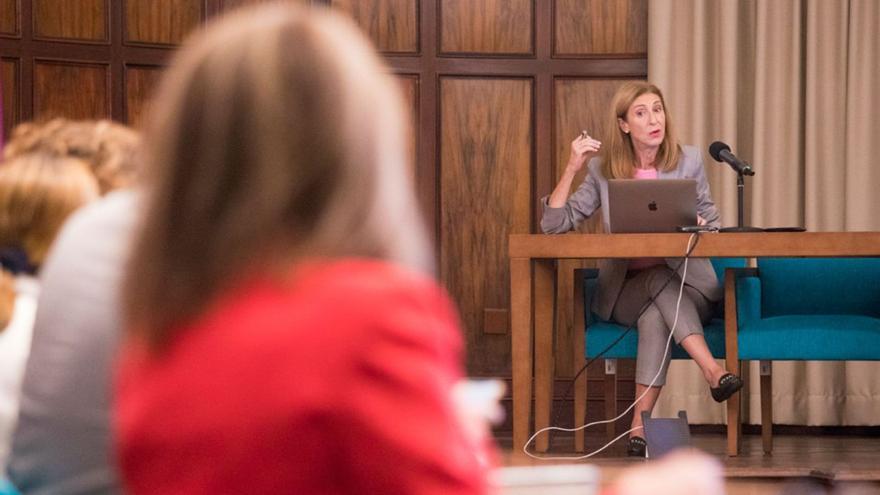Campus América dedicated a large session to shared teaching and, in particular, the construction of the Ibero-American educational space, centered above all on post-graduate studies. The director general of the Ibero-American Postgraduate Association (AUIP), Chantal Pérez, and the director of Higher Education and Science of the Organization of Ibero-American States (EOI), Capilla Casco, have urged universities to make this project a reality. concrete, adopting definitive measures to share qualifications. The rector of the University of La Laguna (ULL), Rosa Aguilar, argued that universities have great transformative power; “We are internationalized organizations and it is time to work in alliance”, she commented, in the sense that the co-tutorship of doctoral theses is no longer enough, “as we have done, but we need to take a step forward and create an Ibero-American space for education superior”.
This was explained by the director general of the AUIP It is an organization that has been promoting academic collaboration for 30 years. Made up of 270 institutions from the 22 countries of Ibero-America, it has 130 consolidated research networks, implements qualification evaluation protocols and manages about one thousand annual scholarships. «We need greater collaboration, forging alliances that last over time, that are meaningful and organized. It is necessary to promote the processes of recognition of degrees, so that there is joint trust and alignment, ”he said.
The AUIP executive referred to transparent processes. Indeed, the organization has just received a very demanding ISO 9001 standard in this area, as it continues to work to attract new funds and available resources. “The international perspective on postgraduate education is crucial,” said Pérez. “In the Ibero-American sphere, in this field we are talking about very unequal situations, for which the union is essential to request adequate funding,” he said.
Postgraduate training is an important axis for achieving the SDGs to become a reality, added the Campus America speaker. The commitment to sustainability and the transformation of societies and countries must go further, but from the universities. As a foundation for the future of postgraduate studies, it is necessary to go to concrete actions beyond the rhetoric, she said. «The Ibero-American knowledge space is a unique opportunity, because the institutions located in those spaces will make us better. We don’t have time to continue as before. Now we have to act “, he concluded.
Ana Capilla, Secretary of Higher Education and Science of the OEI, stressed that she is part of a very veteran organization, more than 70 years old, and that it is clear that she has to commit to an Ibero-American space for education. higher education. It is a region of middle-income countries, which needs advanced cooperation to increase its productivity, with more innovation, added value and cooperation.
Millions of students
The OEI has 19 offices in Latin America, in addition to Portugal, and is keenly aware of the reality of these countries. Chapel reported that there were 32 million college students prior to the pandemic, with a sharp increase in recent years, mostly due to access to college education for first-generation students – the first family member to enter. higher education, a sector in which private initiative has reached 50% in some countries.


